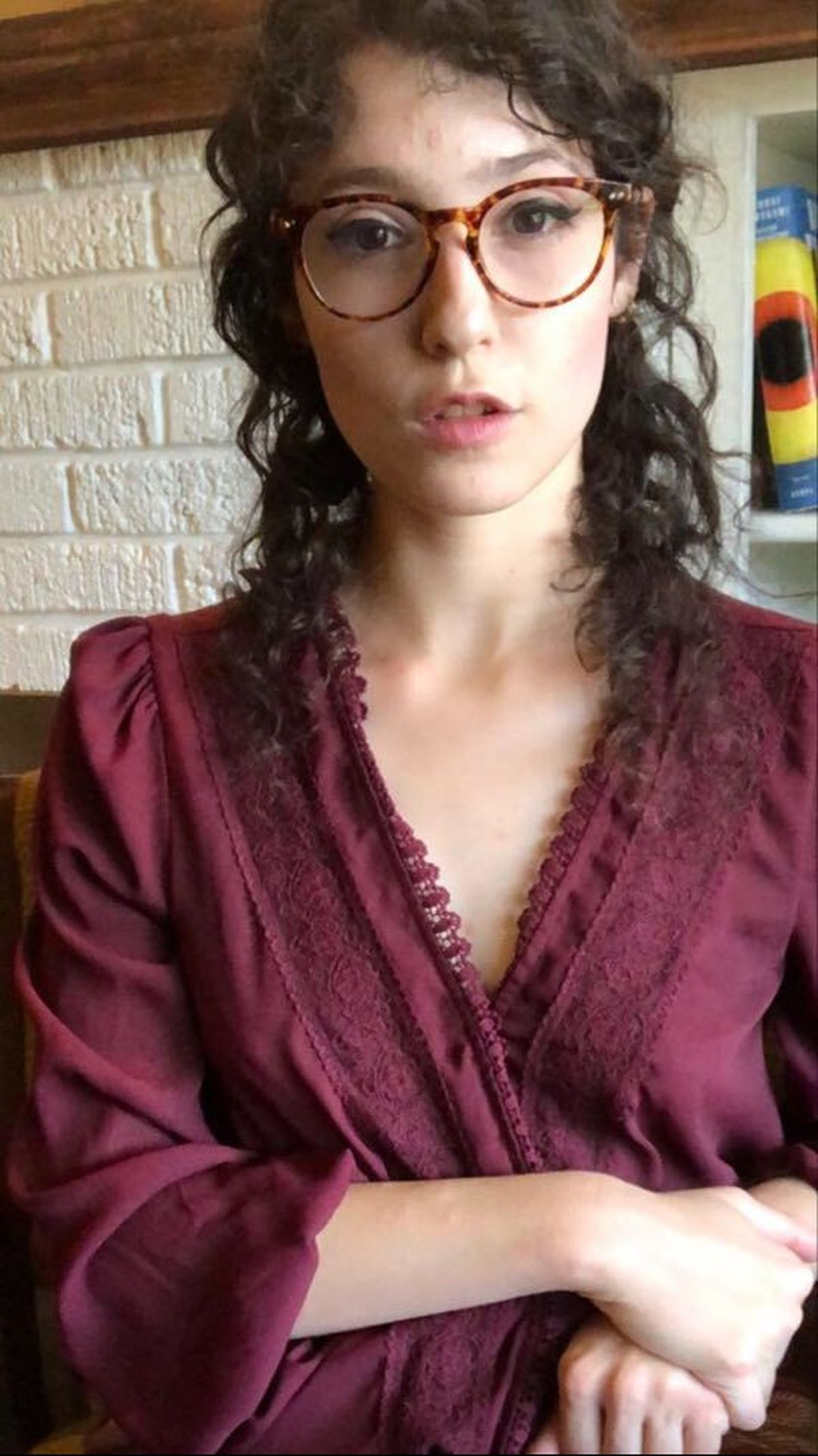Locally Writ: Local writer Jazlyn Jacobs discusses poetry as translation

While local writer Jazlyn Jacobs has not yet released a book of her own poetry, her work has appeared in other publications. Most recently, she became one of 14 poets chosen from 500 submissions to be featured in the Inlander’s poetry edition in April.
But the earliest she remembers being involved was with a collection of poetry published during her elementary school years.
“It’s something that’s always been a part of my life,” Jacobs said, explaining how she recently rediscovered the book going through old boxes in her mother’s basement.
Raised in a Jewish-American family, Jacobs’s familiarity with religious imagery often comes through in her work. “The Stranger,” a piece she wrote for the Diverse Voices Writing Group’s “Try This at Home” anthology book, is the first in a book of poems she intends to self-publish in the next year or so.
It begins: “Angel, I have wrestled with the weight of my name / I have thrown it from my back / onto the sand I have licked it clean to wear it a jewel across my forehead / what does it mean to be beautiful, to inspire terror?”
“My idea was to write a kind of prayer book,” she said. “I’ve seen a lot of Christianity-based poetry, but I think work based on Jewish mysticism and the Jewish faith is severely underrepresented in poetry.
“I refer to ‘The Stranger’ as the most Jewish poem I’ve ever written. … I mention a ram’s horn, blowing the shofar, Elijah’s cup, various things we do at Passover. But I think it’s more expressive of my cultural tradition than based on religion or faith necessarily.”
Quarantine has forced Jacobs to spend less time writing, as, she explained, she does her best work in coffee shops.
“I get nothing done at home,” she said. “But when I get into a certain space … I let it take me over, and the things that need to be said just sort of come out.”
Writing at home is too distracting, but somehow the urgency and energy of being around other people allow her to concentrate and create.
“I find the biggest enemy to writing poetry is editing and writing at the same time,” she said. “As soon as you start backspacing or go back to read the last line, it’s just over.”
She wrote “The Stranger” in one sitting and more or less left it as originally written, but “Persephone Returns From the Land of the Dead,” a spring-themed piece she wrote for the Inlander poetry edition, received a little more scrutiny.
The inspiration for “Persephone Returns From the Land of the Dead” came from several places, particularly from time she spent in South Korea teaching English and the Greek tragedies she studied at Evergreen State College.
She remembered cherry blossoms in South Korea blooming and falling over the course of a week.
“When they started to fall, it was heart-wrenching to me because it was one of the prettiest things I’d ever seen,” she said. “I wanted to pick them up and eat them; I felt like if I did, they would be a part of me.”
As she sat down to write, the cherry blossoms came back to her, and the myth of Persephone eating the food of Hades seemed a perfect means of translating her personal experience into a more universal idea:
“Petal by petal I rip it apart shove / a ruby handful into my aching / mouth how I ate of the / land of the dead now I eat of the land of the living / to make the sunshine last.”
Translation is always on her mind; in addition to Japanese and Korean, Jacobs has studied Hebrew, German, Latin and Mandarin. And in her day job as a behavioral technician working with children on the autism spectrum, she is constantly forced to think about language in new ways.
Both of these aspects of her life, she feels, heavily influence her relationship with poetry.
“Poetry is fascinating to me because it breaks the conventions of language in the same way that foreign English speakers, children and people just starting to use verbal language,” she said. When you speak “proper English,” she continued, there are rules and idioms and complexities of sentence structure, and they all influence the way you think, “But if you have to speak a foreign language, you get to be a lot more creative because you have a very limited set of things to work with – you don’t necessarily know the limitations.”
“To me, poetry exists in that same sort of in-between realm. All written language, in my opinion, is, in some way, a foreign language because you’re translating your inner experience, the way things feel, how it is to exist,” she said, offering advice to aspiring writers. “It’s not a process of making it up; it’s a process of fitting experience into a written language.”
Buy the book
“Try This at Home” is available at Auntie’s Bookstore, Atticus Coffee & Gifts and online at scablandsbooks.org. Proceeds will benefit the Carl Maxey Center in the East Central Neighborhood, a community betterment project organized by the Friends of the Black Lens.
Mike Birbiglia and J. Hope Stein
Auntie’s Bookstore will host a live Zoom event Saturday with comedian Mike Birbiglia and poet J. Hope Stein to celebrate the release of their book “The New One: Painfully True Stories from a Reluctant Dad.” Alternating between comedy and poetry, the couple covers Birbiglia’s initial reluctance to start a family, Stein’s difficult pregnancy and juggling first-time parenthood with active careers. To attend the event, purchase a copy of the book from Auntie’s online or reserve a copy for curbside pickup. For more information on the event, visit Auntie’s Facebook page.